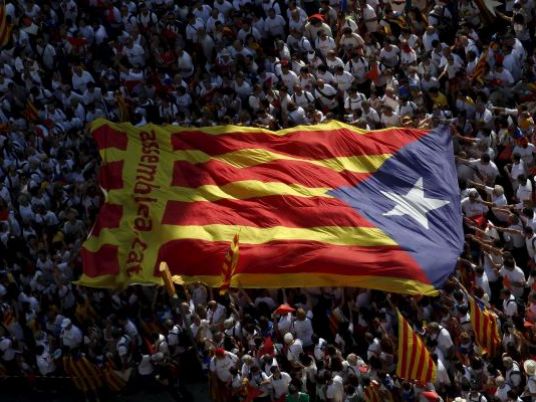
Leaders of Spain’s industrialized northeastern region of Catalonia have said the regional population voted for independence in a ballot that the central government and Constitutional Court say was illegal.
The push for Catalan independence does not appear to find much support in international law nor much successful precedent. Here is a look at how to achieve independent statehood, in law and practice.
WHAT DOES THE LAW SAY?
“As a matter of international law you become a state by being recognized by other states,” said Anna Stilz, professor of politics at Princeton University.
She declined to comment on the Catalan case, but said there were several accepted scenarios for a group of people to claim the right to rule themselves independently of any other country.
“The right of self-determination is conventionally thought not to extend to internal minorities within a state. It’s conventionally thought only to apply to colonized people, people subject to overseas colonization, peoples who are subject to an apartheid government or peoples under military occupation.”
The idea of self-determination, popularized by US President Woodrow Wilson a century ago in response to the ideas of Russian revolutionary Vladimir Lenin, was hard-coded into UN Charter establishing the United Nations in 1945.
Subsequent UN agreements clarified that there was to be no interference in other states, although colonies and other non-self-governing territories had a distinct status and a right to self-determination.
WHAT CONSTITUTES “RECOGNITION”?
There is no hard and fast rule about how many countries’ recognition is required for a state to be recognized as such. Taiwan is not universally recognized as a state but still functions independently of China for most purposes.
Supporters of an independent State of Palestine achieved a breakthrough when the UN General Assembly recognized it as a non-member observer state in 2012, giving it a ticket to join international bodies such as Interpol. But other countries — crucially Israel and the United States — do not recognize it, and it struggles to operate independently.
WHAT IS A STATE ANYWAY?
The 1933 Montevideo Convention sets out four criteria for statehood: a functioning government, a fixed population, control over territory and the capacity to enter into relations with other states.
But ticking those boxes is not enough. An entity like Somaliland, with its own currency, territory and government, is not recognized as a state, Stilz said.
UN membership is also irrelevant to statehood — Switzerland was not a UN member until 2002 but nobody thought it less of a state.
HOW DO YOU GAIN INDEPENDENCE IN PRACTICE?
Since the break-up of the Soviet Union in 1991, several new countries have arisen after years of war, such as in former Yugoslavia.
In South Sudan and East Timor, the international community approved referendums on self-determination in hopes of cementing the peace after decades of bloodshed.
The shadow of Yugoslavia’s war ensured Czechoslovakia’s divorce — triggered when Slovak independence parties won regional elections — was peaceful. But opinion polls showed a majority on both sides would have preferred to stay together.
Separatists in Scotland and Quebec held referendums after years of political campaigning, but both votes went against independence. Both regions had been granted greater autonomy to undermine the case for independence.
Other referendums were not internationally recognized, such as the Russian-backed claim for Crimea to leave Ukraine, and last month’s vote in Iraqi Kurdistan.
Kosovo unilaterally declared secession in 2008 from Serbia, which went to court to try and stop it. The International Court of Justice ruled that “international law contains no applicable prohibition of declaration of independence” although one dissenting judge said it created “a very dangerous precedent”.




